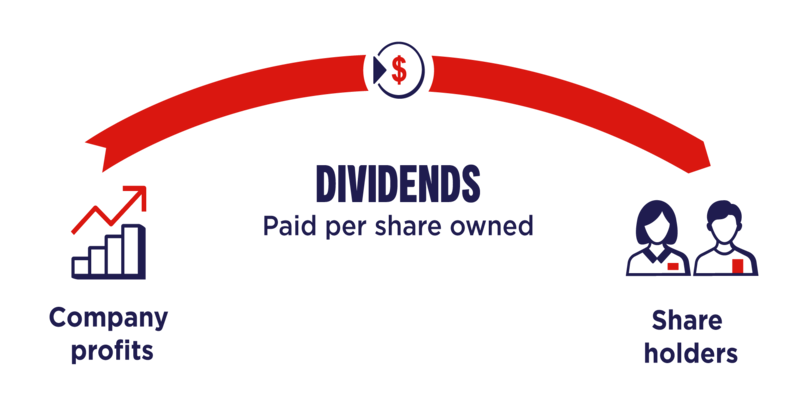Is Investing in Dividends a Good Strategy?
Dec 07, 2024 By Rick Novak
Advertisement
Dividing is a common tactic for those looking to generate a steady income from their investments. Investments in dividend-paying equities regularly distribute a portion of a company's earnings to its owners, which is fundamental to this strategy. Because companies that pay dividends tend to be well-established and financially secure, investing in them is typically seen as a safe and trustworthy way to produce income. Anyone thinking about making dividend investments should weigh the benefits against the risks. Dividends provide a reliable source of income that may be used for either funding daily needs or reinvestment in the company's growth. Stocks that generate dividends are generally safer bets since they are less likely to experience wild price swings.
In contrast to investing in stocks that don't pay dividends, dividend investing may offer fewer investment options and less room for growth. Taxes on dividends can significantly impact an investor's after-tax return. Ultimately, an investor's goals, risk tolerance, and overall investment plan will determine whether or not dividend investing is appropriate for them. Before making any financial commitments, investors should do their homework and consult a financial professional.
How Do Dividends Work?
In dividends, a firm rewards its stockholders for their financial investment. The company's earnings are used to make these distributions. Cash or equity may be distributed as dividends quarterly or annually. A company's profits can be distributed to its shareholders through dividends.
Why Do Firms Pay Dividends?

There are several motives for dividend payments by corporations. One is to show appreciation for the financial support provided by stockholders. In addition, it sends a message to investors and customers that the organization is healthy and profitable. Businesses that consistently distribute dividends to their shareholders are often considered more trustworthy than their peers that do not.
The Benefits Of Dividend Investing:
Consistent Gains
Investing in dividends allows for a constant flow of income for the investor. Companies make regular dividend payments to their shareholders. This gives investors a steady flow of money that can be used for either day-to-day expenses or further investment.
A Decrease In Volatility
Stocks that pay dividends are more stable than those that don't. This is because investors know that dividend-paying corporations are solvent and secure. Companies with a history of consistent profitability are safer investments than startups.
Increase Over Time
Stocks that offer a dividend may be a good investment for the future. Businesses with a history of dividend payments are stable and growing. These businesses enjoy a substantial market share, allowing them to expand their operations and increase their bottom lines for the foreseeable future.
Dividend Reinvestment
One option for those who receive dividends is to reinvest them. This allows for greater long-term returns under the power of compounding. By reinvesting dividends, investors can keep more of their earnings and avoid the costs of buying and selling equities.
One Of The Drawbacks Of Dividend Investing Is That
Possibility For Less Enlargement
Stocks that pay dividends may be less likely to appreciate than those that don't. This is because dividend-paying firms are typically older and more prominent, limiting their ability to innovate quickly. Furthermore, dividend-paying corporations often give a part of profits to shareholders, reducing the amount of money available for reinvestment.
Poor Diversification

In terms of portfolio diversity, dividend investing might be limiting. This is because dividend stocks tend to be clustered inside specific market segments. Shareholders may be vulnerable to the dangers of a particular industry or market segment if they put a large portion of their portfolio into dividend-paying equities.
Implications For Taxes
Investors may be required to pay taxes on dividend income. The result could be a lower ROI. Furthermore, investors may find it more challenging to manage their taxes because the tax status of dividends may differ from other types of investment income.
Conclusion
Investors who want a steady income and less risk may benefit from dividend investing. Stocks that pay a premium are seen as a safe investment option because of the potential for growth over the long term. Investors should weigh the benefits of dividend investing against its drawbacks, such as lesser growth potential and less diversity than non-dividend-producing firms. Before executing a dividend investment strategy, investors should do their homework, consider the tax consequences, and talk to a financial counselor. Eventually, an investor's aims and risk tolerance will determine whether or not they employ this technique.
Advertisement

Kelly Walker Oct 03, 2024
The Ultimate Guide to Choosing the Best Factoring Companies
81317

Rick Novak Oct 06, 2024
The Basics of Substitution Swaps
82576

Kelly Walker Aug 12, 2024
How to Establish a Private Foundation
57204

Kelly Walker Dec 16, 2024
A Comprehensive Comparison: Priceline vs. Hotwire
26714

Kelly Walker Nov 07, 2024
Top Mutual Funds
28709

Kelly Walker Aug 04, 2024
Silicon Valley: Why Is It a Startup Heaven?
9253

Kelly Walker Oct 12, 2024
Fidelity National Home Warranty Review
87585

John Davis Nov 17, 2024
Beginner's Guide: 7 Simple Steps to Starting Your Instagram Blog
6334